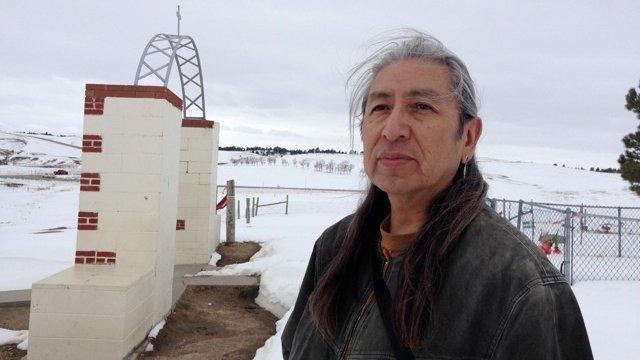Sacheen Littlefeather: Native American activist and actor who refused Oscar for Brando dies
- Published
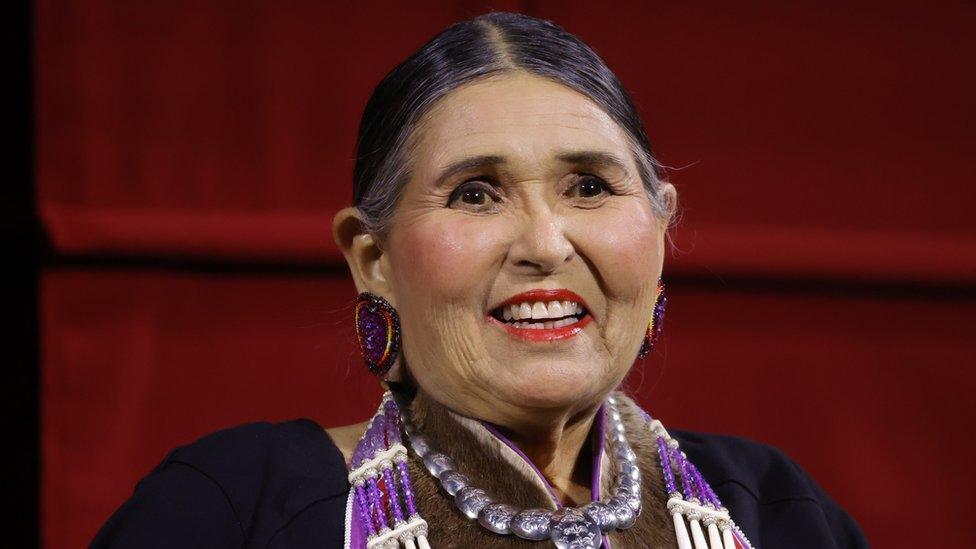
Sacheen Littlefeather was an actress and activist for Native Americans
Sacheen Littlefeather, the Native American activist who declined Marlon Brando's Oscar for The Godfather on his behalf in 1973, has died aged 75.
The actress, who had breast cancer, died on Sunday, the Academy announced.
Her death comes two weeks after the organisation honoured her at a ceremony in Los Angeles, publicly apologising for her treatment at the Oscars.
Littlefeather, of Apache and Yaqui heritage, was booed while speaking on stage at the event 50 years ago.
Dressed in full Apache attire during the first Oscars to be televised around the world, the Californian, born Maria Cruz, explained on Brando's behalf that he would not accept his best actor gong for the mafia movie in order to protest against the treatment of Native Americans by the film industry and to bring attention to the Wounded Knee protests.
In 1973, several hundred locals, together with radical activists from the American Indian Movement (AIM), poured into the nearby village of Wounded Knee in South Dakota to protest government abuse.
The protest resulted in a violent stand-off with federal agents that went on for 71 days.
'Speak the truth'
"I went up there, like a proud Indian woman with dignity, with courage, with grace, and with humility," she remembered at the recent event.
"I knew that I had to speak the truth. Some people may accept it. And some people may not."
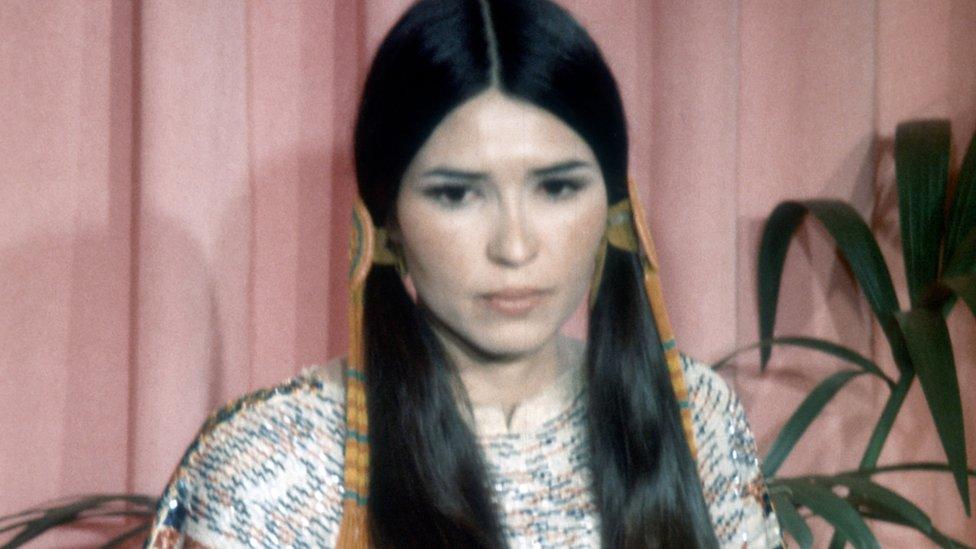
Littlefeather pictured refusing Marlon Brando's Oscar on his behalf at the 1973 ceremony
Screen Actors Guild member Littlefeather struggled to get work in the industry afterwards but said it was "never too late for an apology... it's never too late for forgiveness."
At the gala event at the Academy last month, Littlefeather appeared on stage in a wheelchair, laughing and entertaining the crowd, which included many Native and indigenous people working in the film industry.
"I didn't represent myself. I was representing all indigenous forces out there. All indigenous people. Because we have never been heard in that way before," she told the BBC when asked about her speech at the Oscars nearly 50 years ago.
The Apache actress and activist said she faced decades of harassment for making that speech.
"Somebody had to do it. And it was okay. And I had to pay the price."
The next time a Native American makes a political Oscars speech it will likely be when they accept their own Academy award. The rules were changed after Littlefeather's speech and winners are now banned from sending someone else to collect, or reject, their statuette.
In a recent interview with Variety, external, Littlefeather recalled the moment she walked off the stage in 1973.
"I was met with the stereotypical tomahawk chop, individuals who called at me, and I ignored all of them," she recalled. "I continued to walk straight ahead with a couple of armed guards beside me, and I held my head high and was proud to be the first Indigenous woman in the history of the Academy Awards to make that political statement.
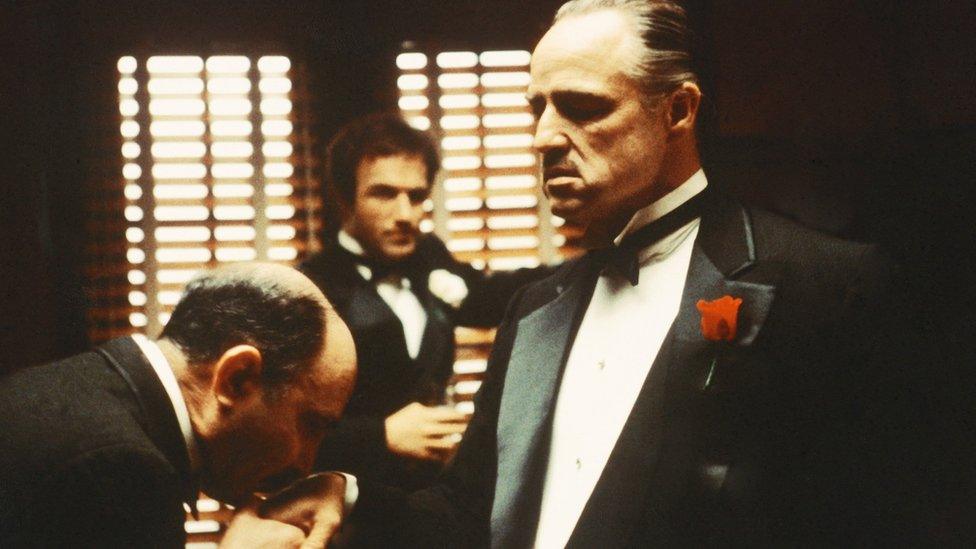
Brando won the best actor Oscar for his portrayal of crime boss Vito Corleone
"At that time in 1973, there was a media blackout on Wounded Knee and against the American Indian Movement that was occupying it," she went on. "Marlon had called them in advance and asked them to watch the Academy Awards, which they did.
"As they saw me, up on stage, refusing that Academy Award for the stereotypes within the film industry, and mentioning Wounded Knee in South Dakota, it would break the media boycott."
In 2020, Littlefeather told the BBC that straight after the speech she had to leave the stage with two security guards. But, she added, it "was a very good thing" as actor John Wayne was backstage. She said he was "furious with Marlon and furious with me" and wanted to pull her off stage himself.
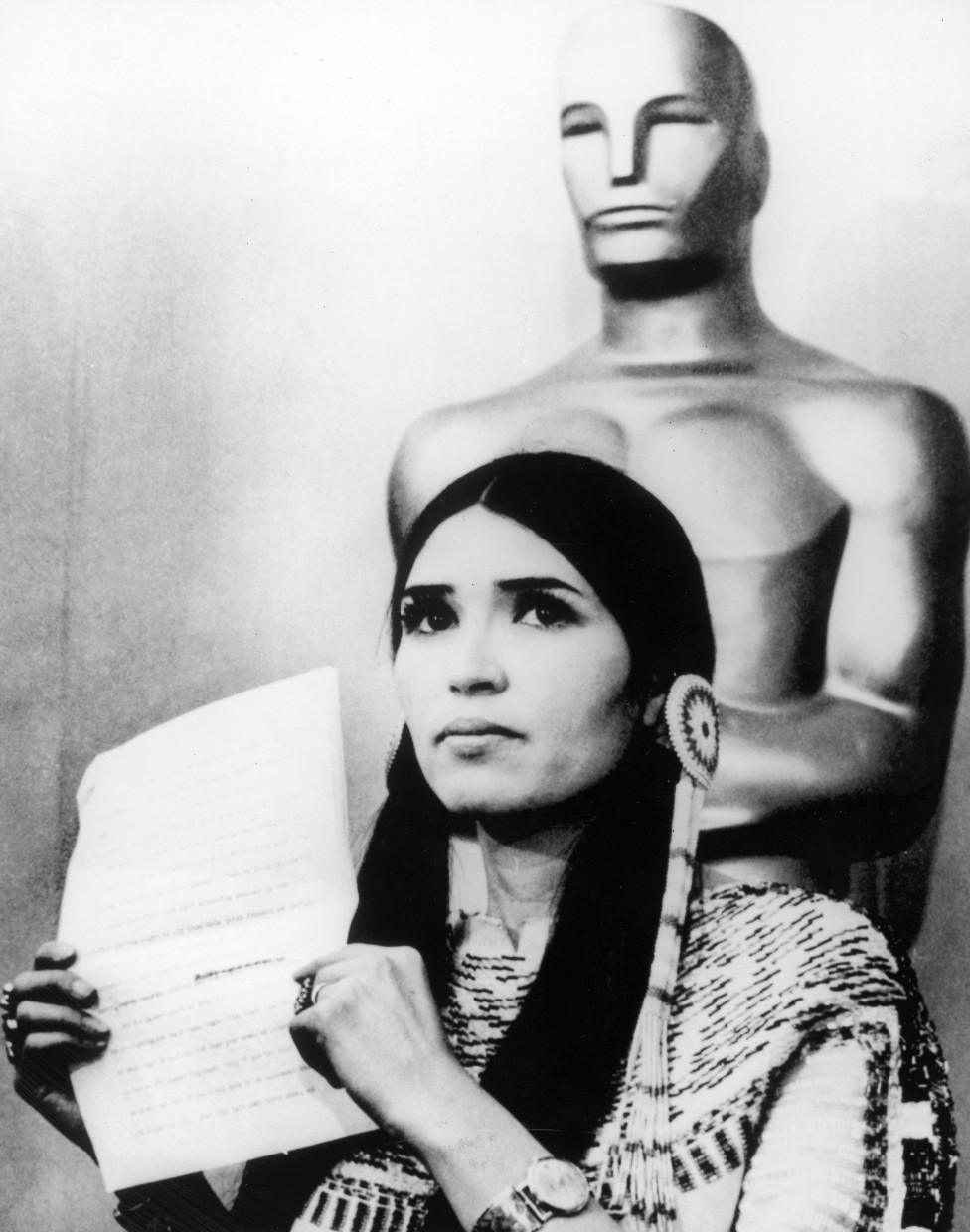
She held up a letter from Brando while explaining why the Hollywood star would not accept his award
Littlefeather featured in films like The Trial of Billy Jack, Johnny Firecloud and Counselor at Crime, but said she returned to San Francisco after being blacklisted by the industry, to continue her activism and work in health care and the theatre.
Paying tribute online on Monday, external, Dakota/Lakota Sioux writer and biologist Ruth H. Robertson, aka Red Road Woman, pointed to Littlefeather's work with the American Indian Aids Institute of San Francisco.
Lakota Man on Twitter offered, external: "It's with a heavy heart that I mourn the passing of Sacheen Littlefeather. I wish her a blessed journey", later adding: "Honour her".
TV writer Joey Clift said:, external "When I talk about how our current Native storytelling movement in Hollywood is built on the shoulders of activists fighting tirelessly for decades for Native people to finally get our day in the sun, I'm talking about Sacheen Littlefeather. RIP."
Allow X content?
This article contains content provided by X. We ask for your permission before anything is loaded, as they may be using cookies and other technologies. You may want to read X’s cookie policy, external and privacy policy, external before accepting. To view this content choose ‘accept and continue’.
In announcing her death online, the Academy quoted Littlefeather, the subject of the 2021 documentary, Sacheen: Breaking the Silence, saying: "When I am gone, always be reminded that whenever you stand for your truth, you will be keeping my voice and the voices of our nations and our people alive."
Related topics
- Published16 August 2022
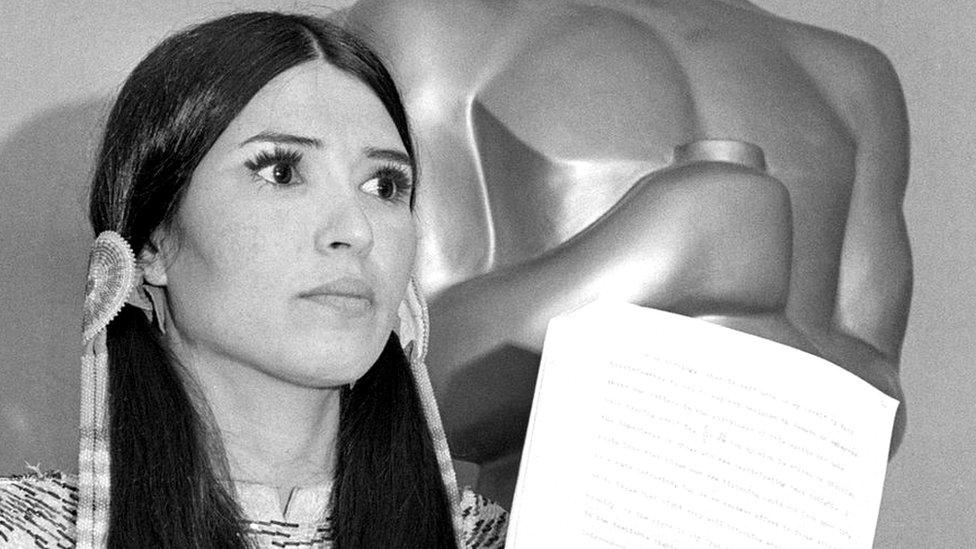
- Published28 April 2013
